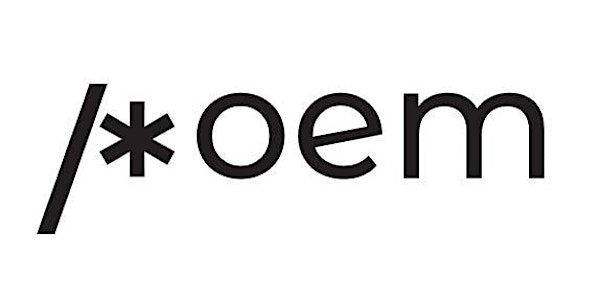
POEM Opening Conference
Participatory Memory Practices: Connectivities, Empowerment, and Recognition of Cultural Heritages in Mediatized Memory Ecologies
Date and time
Location
Museum der Arbeit
Wiesendamm 3 22305 Hamburg GermanyRefund Policy
About this event
POEM Opening Conference
Date: 13.-14.12.2018
Venue: Museum der Arbeit (Wiesendamm 3, 22305 Hamburg, Germany)
The conference fee covers the contribution for the expenses (catering, etc.)
For further information and updates, please check the POEM website: https://www.poem-horizon.eu/
Diverging forces across European societies - most visible in both the contemporary nationalist movements and Islamist radicalization - place particular relevance on social and cultural inclusion. Culture may cultivate both integrative and disruptive forces; in this light heritage experts, policy makers, social entrepreneurs, and other facilitators are seeking to establish inclusive memory politics for envisioning possible futures of how we should remember our past in Europe. The recognition of “difficult” and dissonant traditions and the contestation of public memory in respect to the representation of colonial traditions and immigration, multiculturalism and transnational history, non-Christian religious heritages in European societies, female heritages, or the inclusion of deprived groups are important issues in this debate. Being part of the public memory is crucial for envisioning positive futures, acknowledging people’s and groups’ history, identity, belonging, and membership. Furthermore, questions of eligibility play an important role in relation to public support or redemption, for partaking in economic outcomes, or in relation to questions on ownership of cultural heritage resources.
Participatory memory work (PMW) is a framework for examining the strategies and practices of public memory institutions - libraries, archives, and museums - as well as of individuals and groups in their everyday life. PMW means the inclusion of diverse memories across social situations (gender, socio-economic status, education, migration, etc.) into public memory work. It means to acknowledge these diverse memories as a significant part of the history, the heritage, and the contemporary life in Europe. Aiming for a socially inclusive public memory, concepts of European cultural citizenship are increasingly debated and experimented widely with participatory approaches in public memory institutions. At the same time, new memory ecologies have emerged with networked media infrastructures and their extensive uses, in mediatized, globally connected societies. The Internet and social media are “natural” parts of self-representation, marketing, or audience communication of public memory institutions; large scale digital heritage initiatives demarcate the transformation activities towards digital cultural production.
However, the participatory turn in memory work, essential for a socially inclusive public memory, turns out to be not as easy to implement in practice. Aside from the established memory institutions, people and groups explore Internet platforms for commemoration and sharing personal texts, photos, or videos and collaboratively contribute to an emergence of open access “archives” of everyday life. The diverse platforms, e.g. YouTube, Facebook, Twitter, Instagram, Pinterest, etc., broadly attract people and groups for contributing cultural materials, articulating their views of history/histories and enfolding personal and group-related memory practices. Even though they are public, these Internet “archives” are beyond the scope of public memory politics and institutions; they are run for economic purposes in private ownership. The accessibility of these “archives” is regulated by business models and remains unclear towards the future. Connecting personal and group-related memory work in the public to participatory memory politics is thus confronted with legal and economic obstacles, ethical issues, as well as with discontinuities and gaps of individual and institutional social practices of memory work. This highlights the changed technical, organizational, and legal modalities of doing participatory memory work for social inclusive memory politics.
The conference centres around the question on how the various developments in memory work can be brought together for facilitating participatory memory practices. How do memory practices of stakeholders overlap? Which connectivities can be built across individual and institutional practices of memory work? How do media matter for connecting different memory practices across people and groups as well as institutions? How can empowerment become an integral factor in public memory work? What modes of recognition and inclusion are adequate? How can they be organised to develop their full potential for envisioning European futures? How does this affect the making and unmaking of heritage? What competences do people and groups need for making their particular traditions relevant in the public memory? How can private and shared memories of a group on the Internet be collected and integrated in public memory institutions?
The conference addresses a multidisciplinary and international group of scholars and experts from memory institutions, civil society, policy makers, social entrepreneurs, the coding community, and creative industries.
* This project has received funding from the European Union’s Horizon 2020 research and innovation programme under the Marie Skłodowska-Curie grant agreement No. 764859.